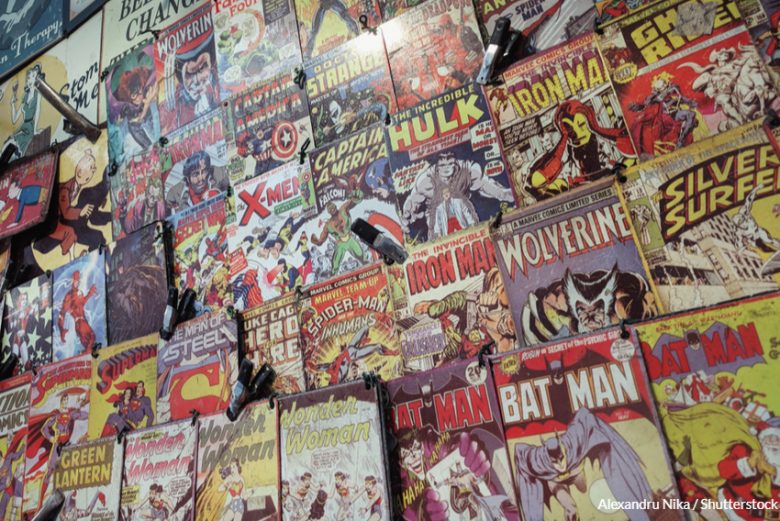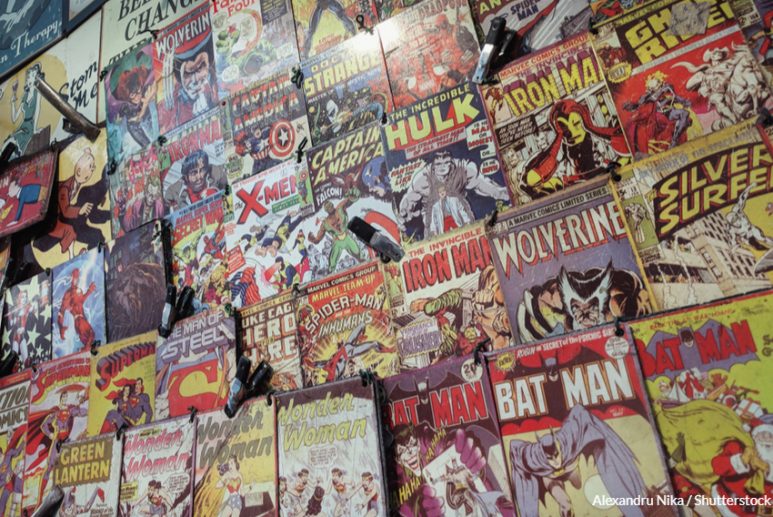By Angelo Boccato
When the first teaser of Amazon’s Rings of Power was released online, on February 14th, the main focus of the fans was on the return to J.R.R Tolkien’s Middle-Earth, following The Hobbit-The Battle of the Five Armies by Peter Jackson in 2014; however, some reactions also turned, with criticism to two casting choices specifically.
Some of the reactions to the casting of the British actress of Afro/Iranian descent Sophia Nomvete and of the Puerto Rican actor Ismael Enrique Cruz Córdova, as the Dwarven princess Disa and as the Silvan Elf Arondir respectively, were symptomatic of the toxicity which is entrenched in a section of the geekdom scene quite adherent to crypto and openly racists and white supremacists views, a section which simply cannot accept diversity.

This was not of course the first case; similar reactions followed the casting of Idris Elba as the Norse god Heimdall in the Thor movies, John Boyega’s role as the Stormtrooper Finn in J.J Abrahms’ Star Wars new trilogy, and more recently the announcement of the cast of the upcoming Netflix show The Sandman (based on the homonymous comic book series by Neil Gaiman) was met with criticism, specifically aimed at the casting of two of the siblings of The Sandman’s protagonist (Morpheus, Dream of the Endless) Death, played by Black British actress Kirby Howell-Baptiste and Desire, played by US non-binary actor Mason Alexander Park.
While Neil Gaiman responded to this toxic fandom directly and highlighted how these supposed fans did not know as much as they thought about this lore they were claiming ownership to, the core problem remains when it comes to how mainstream Imaginarium, in the mind of some of many should not feature any diversity at all, representing in a way the danger of a single story, to quote Nigerian author Chimamanda Ngozi Adichie’s famous TED Talk.
This exclusionary concept of Imaginarium is, in fact, heavily rooted in a Eurocentric perspective of history and mythology, as well as in a lack of acknowledgment for the African roots of myths and history.
“Some of that mythology that ideology is based on are these Norse legends and ancient tales of Norway and Sweden and if you look at shows like Game of Thrones you can see how the whole concept of fantasy is rooted in a very European, white medieval kind of era and that is the canon” Tony Warner, Director of Black History Walks tells Media Diversity Institute.
This is also very much political in Nazism, fascism and the far-right: Nazism was entrenched in the Norse myths, not to mention Hitler’s personal obsession for the occult and the Thule society. This obsession and misappropriation of Norse myths remain present in Neo nazi and far right groups to this day.
Also, in Italy in the 1970s-1980s, the neo-fascist Movimento Sociale Italiano (Italian Social Movement), whose acronym, MSI stood also for Mussolini sei immortale “Mussolini you’re immortal”, founded by fascist hierarch Giorgio Almirante and lacking significant cultural traditions of their own, appropriated the work of Tolkien, by launching the Hobbit camps, a sort of fascist Woodstock; to this day, the fantasy link remains as the national event of the far-right Brothers of Italy (heir to the MSI tradition) led by Giorgia Meloni is called Atreju, as the main character of Michael Ende’s “The Neverending Story”.
“African mythology and history are already present in a lot of mainstream superhero stories, but it’s not acknowledged, so when you look at some of Greek gods for argument’s sake, when you trace their history back they go back to ancient Sudan and ancient Egypt. If you look at Zeus and Mercury, we can agree that there’s a previously existing character god concept that has a similar set of powers, a similar background but the names have changed over time,” Warner says.
“If you think about Thor, the Norse god of thunder and you then look to West Africa, there is Ogun and then Shango, whose iconic item is a hammer and has control over certain elements. When you think about West African, Nigerian mythology you have a goddess called Oya, who is a goddess of weather conditions. Then in the X-Men you have Storm ( a mutant who controls weather conditions) and in the comic books her origin is in Kenya, but there is a mythology there, in West Africa pre-existing colonisation” Tony Warner further explains.
There are other several examples in the creation of mainstream fictional characters that are rooted in African mythology and history, and, as Warner puts “It’s all there, just covered up in whiteness”. Wonder Woman is one of these examples. Wonder Woman includes elements of the real-history Amazon warriors of Benin – a 6,000 strong all-female unit of fighters who fought the French to a standstill. These warriors will appear on the silver screen in the upcoming The Woman King with Viola Davis. They were also the source of inspiration for the fictional Dora Milaje, the female warriors and protectors of the Black Panther and Wakanda, more widely known thanks to Ryan Coogler’s Black Panther.
Ryan Coogler’s Black Panther has been a groundbreaking example of how diversity and representation in the superhero genre can contribute towards a blockbuster success, something that many did not expect. The Black Panther paved the way for subsequent successful movies of the Marvel Cinematic Universe with a diverse cast, like Shang-Chi and the Legend of the Ten rings.
In addition to that, as Warner observes, Coogler’s movie was rooted into African myths and history, as just three minutes into the movie, the Ancient Djènne Mosque of Timbuktu is featured, a display of just how much research Coogler put in the movie, research that he worked on directly in the African continent.
While there is a certain expectation among fans for the second instalment of Black Panther Wakanda Forever, for future projects there is also a certain expectation for the reboot of Blade, the Marvel half-vampire and vampire slayer played by Wesley Snipes who will be passing the mantle to Mahershala Ali.
Wesley Snipes’s Blade has paved the way, in fact for the MCU as a whole, even before Sam Raimi’ Spider Man, Bryan Singer’s X-Men, and the first MCU movie, Jon Favreau’s Iron Man but this is rarely acknowledged; for this reason, as Warner highlights it would be important for Marvel Studios to include Snipes in some capacity in the upcoming reboot.
“What is needed [in order to diversify the superhero/sci-fi/fantasy genres and the movie industry as a whole] is a lot more of Black producers, funders and directors. We have plenty of talent in front of the camera, so many writers but the gatekeepers are the decision makers who block certain films from being produced and made in the first place,” Warner tells Media Diversity Institute.
“We have had a Black President in 2008, Barack Obama but there has never been, as far as I am aware, a Black Head of a studio in Hollywood, at Warner Brothers, Sony, Columbia…that executive level of control, that is where the problem is”.
Warner, places a lot of emphasis on the power fans have over studio decisions.
“Also, there are the fans too because if they demand something hard enough they can sometimes get it. Deadpool is a fan-created movie because they demanded that film to be made and demanded Ryan Reynolds to star in it and guess what they got?” he says.
There are several steps to be taken to diversify the industry, but the success of diverse stories on the screen are all indicators of what should be the way forward also behind the camera, with a history and mythology to prove it.

